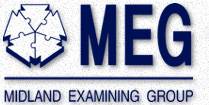
The General Certificate of Secondary Education (GCSE) is an academic qualification in a range of subjects taken in England, Wales and Northern Ireland, having been introduced in September 1986 and its first exams taken in 1988. State schools in Scotland use the Scottish Qualifications Certificate instead. However, private schools in Scotland often choose to follow the English GCSE system.
The General Certificate of Education (GCE) is a subject-specific family of academic qualifications used in awarding bodies in England, Wales, Northern Ireland, Crown dependencies and a few Commonwealth countries. For some time, the Scottish education system has been different from those in the other countries of the United Kingdom.
The Tripartite System was the arrangement of state-funded secondary education between 1945 and the 1970s in England and Wales, and from 1947 to 2009 in Northern Ireland. It was an administrative implementation of the Education Act 1944 and the Education Act 1947.
The Certificate of Secondary Education (CSE) was a subject-specific qualification family awarded in both academic and vocational fields in England, Wales and Northern Ireland. CSE examinations were held in the years 1965 to 1987. This qualification should not be confused with the Indian Certificate of Secondary Education which is a school-leaving qualification in India. Also, in some African and former British colonial countries there is a qualification named the Certificate of Secondary Education based on the original and former British variant. Also, the CSE should not be confused with the African qualification CSEE.

A secondary modern school is a type of secondary school that existed throughout England, Wales and Northern Ireland from 1944 until the 1970s under the Tripartite System. Schools of this type continue in Northern Ireland, where they are usually referred to as secondary schools, and in areas of England, such as Buckinghamshire, Lincolnshire and Wirral,.

The A-level is a subject-based qualification conferred as part of the General Certificate of Education, as well as a school leaving qualification offered by the educational bodies in the United Kingdom and the educational authorities of British Crown dependencies to students completing secondary or pre-university education. They were introduced in England and Wales in 1951 to replace the Higher School Certificate. The A-level permits students to have potential access to a chosen university they applied to with UCAS points. They could be accepted into it should they meet the requirements of the university.

The Associated Examining Board (AEB) was an examination board serving England, Wales and Northern Ireland from 1953 until 2000 when it merged with NEAB to form AQA.

The O-Level is a subject-based qualification conferred as part of the General Certificate of Education. It began in the United Kingdom and has been adopted, often with modifications, in several other countries.
The School Leaving Certificate popularly abbreviated as SLC, is the final examination of Class 11 and Class 12 which is also known as +2 course in Nepal. A +2 course is generally pursued after completing Secondary Education Examination (SEE).

The Office of Qualifications and Examinations Regulation (Ofqual) is a non-ministerial government department that regulates qualifications, exams and tests in England. Colloquially and publicly, Ofqual is often referred to as the exam "watchdog".

The Midland Examining Group (MEG) was an examination board, operating in England, Wales and Northern Ireland. It offered a range of GCSE and Certificate of Achievement qualifications. It became part of OCR in 1998.
Examination boards in the United Kingdom are the examination boards responsible for setting and awarding secondary education level qualifications, such as GCSEs, Standard Grades, A Levels, Highers and vocational qualifications, to students in the United Kingdom.

The United Kingdom School Certificate was an educational attainment standard qualification, established in 1918 by the Secondary Schools Examinations Council (SSEC).
The A level, is a main school leaving qualification of the General Certificate of Education in England, Wales, Northern Ireland, the Channel Islands and the Isle of Man. It is available as an alternative qualification in other countries, where it is similarly known as an A-Level.
The Joint Matriculation Board of the Universities of Manchester, Liverpool, Leeds, Sheffield and Birmingham (JMB), sometimes referred to as the Northern Universities Joint Matriculation Board, was an examination board, operating in England, Wales and Northern Ireland between 1903 and 1992. It became part of NEAB, which itself is now part of AQA.
Plaistow County Grammar School, also known as "Plaistow Grammar" or "PGS", was a local authority mixed gender Grammar school established in 1945 and located on Prince Regent Lane (A112) in Plaistow, in the County Borough of West Ham and then the London Borough of Newham in east London. It was disestablished in 1972 upon its merging to create a Comprehensive school.

The General Certificate of Education (GCE) Ordinary Level, also called the O-level or O level, was a subject-based academic qualification. Introduced in 1951 as a replacement for the 16+ School Certificate (SC), the O-level would act as a pathway to the new, more in-depth and academically rigorous A-level, in England, Wales and Northern Ireland. Later, the complementary and more vocational Certificate of Secondary Education (CSE) was added to broaden the subjects available and offer qualifications in non-academic subjects.

The Southern Examining Group (SEG) was an examination board offering GCSEs in England, Wales and Northern Ireland formally established in 1987. In 1994, it was taken over by the Associated Examining Board, but kept its own identity until the AEB merged with NEAB to form AQA in 2000.

Kathleen Tattersall was a British educationalist, specialising in examination administration. She was the leader of five examination boards in the United Kingdom before becoming the first head of exams regulator Ofqual.









